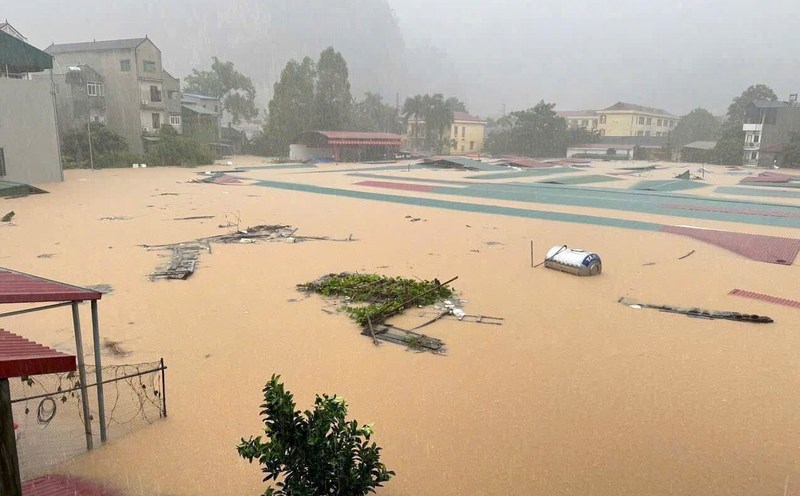These figures affirm the irreplaceable role of private enterprises in the development of the country.
However, in contrast to the strong momentum from practice, this area is still being held back by institutional barriers that have lasted for many years.
The worrying thing is not only cumbersome administrative procedures or slow processing of records, but more deeply, the inconsistency and uncertainty of policies.
As Ms. Luu Thi Thanh Mau - Vice President of the Vietnam Young Entrepreneurs Association on Lao Dong said, many legal regulations are overlapping and inadequate (such as the Land Law, Construction Law, Investment Law, Environmental Protection Law), causing difficulties in application. The settlement of investment and land records is often delayed, affecting the progress of project implementation.
When regulations are constantly changing, they can even be violated, businesses are easily hesitant and find it difficult to dare to take long-term investment risks.
In business, finance, technology or human resources are all important, but trust in the legal environment is the decisive factor for businesses to expand.
A good policy that is not legalized or changed in between will turn into a legal risk. That is the reason why many businesses prefer to choose safety, not dare to invest heavily, or seek to "run projects" through unofficial roads.
Dilapidated confidence also creates huge opportunity costs. An investor may miss market opportunities just because the project is stuck in paperwork; a startup may give up when the procedures are beyond their endurance.
Each delay not only causes businesses to lose their competitive advantage, but also causes the whole economy to lose growth momentum.
Recently, the slogan " shifting from management to creating and serving" has been continuously emphasized in almost all forums from the central to local levels.
However, creation cannot stop at accompanying and supporting on the surface, but needs to create a stable, transparent and consistent legal environment. Businesses can only be truly assured when they know that the rules of the game do not change unexpectedly, do not stir up, do not overlap conflicts.
This is even more meaningful in the context of the current context of extensive international integration. Usually, foreign investors will look at the way the State treats domestic private enterprises to assess the reliability of the market.
Therefore, if the business environment is unstable, Vietnam will lose its competitive advantage in attracting international capital.
To remove difficulties and remove barriers for the private economic sector, we need to legalize major policies, turning them into long-term legal commitments.
When upgraded to a law, the new policy will have binding effects, creating consistent stability, avoiding the situation of "term policies". This is a way to affirm that the State accompanies businesses not only in one period, but throughout the development process.
The private economy has proven its pivotal role in the economy. However, to make this area fully exploited, the thing businesses need most is not only to remove procedural barriers, but also a stable, transparent and reliable legal corridor.
In sales, whether big or small, household or national, after all, trust is the most important source of income. Conistent and long-term laws are the strongest commitment of the State to encourage businesses to increase capital and develop.












